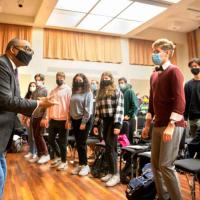Ori Heffetz is a data-based economist, using lab and field surveys and experiments to study the psychological, social, and cultural aspects of economic behavior, well-being, and policy. Heffetz's work investigates what we can and cannot learn from economic and well-being indicators—household expenditures, the unemployment rate, or self-reported happiness—and how governments can use such data to guide policy. For example, he studies how people interpret and respond to survey questions, and how the resulting data are affected.Heffetz also studies people's economic perceptions, inferences, beliefs, and expectations, how they are related to behavior, and how policymakers can take them into account to design better policies and markets. For example, he has studied product visibility and conspicuous consumption, and how people infer quality from prices, choose relative to reference points, and respond to reminders, deadlines, menu descriptions, guarantees of data privacy, or public information about health risk.Heffetz holds a BA in physics and philosophy from Tel Aviv University and a PhD in economics from Princeton University. He is a co-author of a widely used Principles of Economics textbook, and has created an award-winning macroeconomics course that introduces basic concepts and tools from economic theory and applies them to current news and global events. Beyond his academic research and teaching, he advises governmental and non-governmental institutions, and writes and speaks about economic issues.
/ori-heffetz

 Department Homepage
Department Homepage

